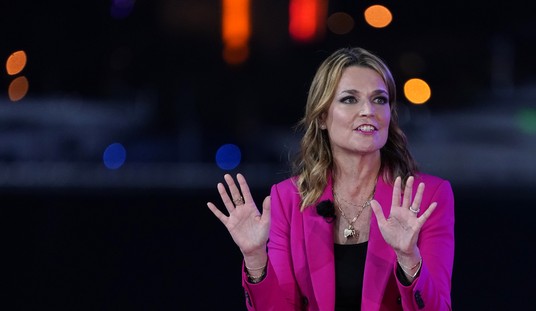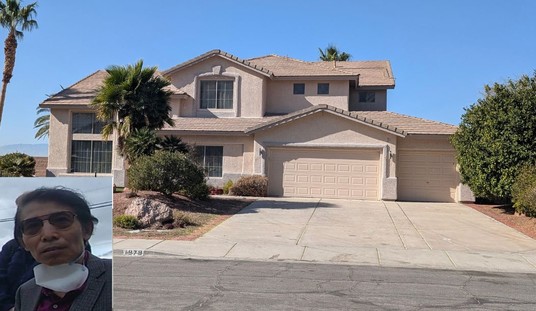
Former special counsel Robert Mueller listens to committee members give their opening remarks before he testifies before the House Intelligence Committee hearing on his report on Russian election interference, on Capitol Hill, in Washington, Wednesday, July 24, 2019. (AP Photo/Andrew Harnik)
In a little noticed exchange during former special counsel Robert Mueller’s testimony before the House Judiciary Committee last month, Rep. Tom McClintock (R-CA) tried to determine why he had held his peculiar press conference on May 29th.
McClintock asked, “Did your May 29th press conference have anything to do with the fact that the previous day, the judge threatened to hold your prosecutors in contempt for misrepresenting evidence?”
Mueller replied, “No.” (Please scroll down to view a transcript of this exchange.)
U.S. District Court Judge Dabney Friedrich, who presided over the special counsel’s case against two Russian internet “trolling” firms, wished to question prosecutors from the Mueller team about a concern she shared with the defendants’ attorneys. She called for a closed hearing to be held on May 28th.
Judge Friedrich and the defendants’ attorneys claimed that the Mueller report contained “misleading language” about the Russian government’s role in 2016 election interference. Recently released court documents suggest she insisted on changes and “privately threatened to hold his [Mueller’s] team in criminal contempt of court.”
The hastily arranged press conference held the next day appears to be the Mueller team’s attempt at “damage control.”
If this is proven to be true, then Mueller may have perjured himself when he told Rep. McClintock (under oath) that the hearing held on May 28 had nothing to do with his press conference the following day.
It almost goes without saying that the Mueller team wished to leave the impression that “the Kremlin had interfered in the 2016 election to help Donald Trump win.”
Real Clear Investigation’s Paul Sperry reported:
Although no reporters were allowed inside, it is now known that Friedrich agreed with one defendant’s claims that Mueller had overstated the evidence when he implied in his report to Congress that the trolls were controlled by the Russian government and that the social media operations they conducted during the 2016 presidential campaign were directed by Moscow. News organizations had seized on the highly suggestive wording in his report to report they were part of a Kremlin-run operation.
Judge Dabney Friedrich ordered Mueller to stop overstating evidence of Kremlin-directed interference.
Concerned that Mueller’s words could prejudice a jury and jeopardize the defendants’ right to a fair trial, Friedrich ordered the special prosecutor to stop making such claims and “to minimize the prejudice moving forward” — or face sanction.
Friedrich’s ruling stated, “The government shall refrain from making or authorizing any public statement that links the alleged conspiracy in the indictment to the Russian government. Willful failure to do so in the future will result in the initiation of contempt proceedings.”
The judge explained that Mueller’s report improperly referred to the defendants’ “social media operations” as one of “two principal interference operations in the 2016 U.S. presidential elections” carried out by the Russian government. She also pointed out that he referred to their Internet trolling as “active measures” — a term of art that typically includes operations conducted by Russian intelligence to influence international affairs. She said this was a departure from the government’s original February 2018 indictment, which “does not link the defendants to the Russian government” and “alleges only private conduct by private actors.”
Friedrich further directed the prosecution to make clear that its allegations are simply that and “remain unproven.” She also admonished Mueller’s team from expressing “an opinion on the defendant’s guilt or innocence.”
The next day, Mueller called the press conference in which he read a prepared statement and took no questions afterward. I wrote about it here, here and here.
Mueller’s most important words, and everyone seemed to miss their significance at the time, were that the “Russians he had indicted were “private” entities and “presumed innocent.””
In order to satisfy Judge Friedrich’s demands, the Mueller team needed to drop the part of their narrative that tied the defendants to the Russian government.
It appeared to have worked. Friedrich’s July 1st opinion was unsealed later that month. She wrote that Mueller had “demonstrated the government had complied with her order with his statements to the media.” The opinion read:
In delivering his remarks, the special counsel carefully distinguished between the efforts by ‘Russian intelligence officers who were part of the Russian military’ and the efforts detailed ‘in a separate indictment’ by ‘a private [italics in original] Russian entity engaged in a social media operation where Russian citizens [italics in original] posed as Americans in order to interfere in the election.’
The media was unaware of this behind the scenes action until the court records were unsealed. Even then, it was not a major news item.
Which brings us back to Rep. McClintock’s exchange with Robert Mueller during his disastrous July 24th testimony before Congress.
As mentioned above, Mueller refused to acknowledge to McClintock that his press conference was related to his team’s dealings with Judge Friedrich.
Sperry contacted McClintock who said, “It certainly doesn’t pass the smell test…If he lied, he’s guilty of perjury and lying to Congress. I think this would be of interest to the U.S. attorney investigating misconduct in this matter and the inspector general’s office.”
But McClintock knows that House Judiciary chair, Jerry Nadler, would never refer Mueller to the DOJ for lying to Congress, and obviously wishes circumstances were different. After all, Mueller has charged Trump associates with similar offenses.
Transcript of McClintock questioning Mueller:
McClintock: Your report famously links Russian Internet troll farms with the Russian government. Yet at a hearing on May 28 in the Concord Management-IRA [Internet Research Agency] prosecution that you initiated, the judge excoriated you and [Attorney General William] Barr [who publicly recited Mueller’s claims from the report] for producing no evidence to support this claim. Why did you suggest Russia was responsible for the troll farms, when in court you’ve been unable to produce any evidence to support it?
Mueller: Well, I am not going to get into that any further than I — than I already have.
McClintock: But — but you — you have left the clear impression throughout the country, through your report, that it — it was the Russian government behind the troll farms. And yet, when you’re called upon to provide actual evidence in court, you fail to do so.
Mueller: Well, I would again dispute your characterization of what occurred in that — in that proceeding.
McClintock: In — in — in fact, the judge considering — considered holding prosecutors in criminal contempt. She backed off, only after your hastily called press conference the next day in which you retroactively made the distinction between the Russian government and the Russia troll farms. Did your press conference on May 29th have anything to do with the threat to hold your prosecutors in contempt the previous day for publicly misrepresenting the evidence?
Mueller: What was the question?
McClintock: The — the question is, did your May 29th press conference have anything to do with the fact that the previous day the judge threatened to hold your prosecutors in contempt for misrepresenting evidence?
Mueller: No.












Join the conversation as a VIP Member